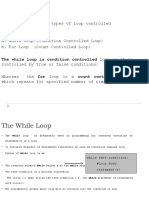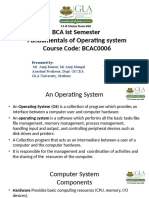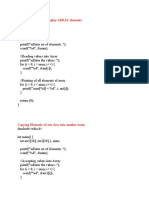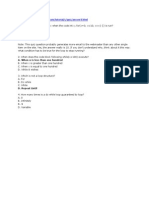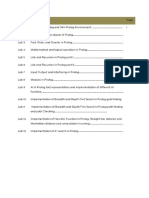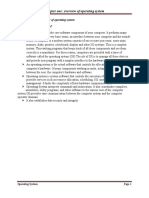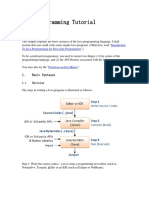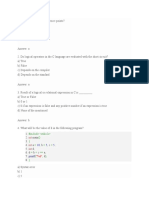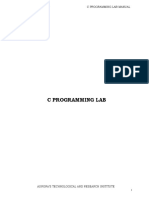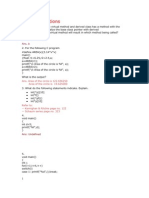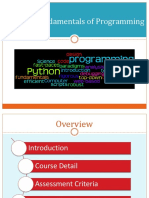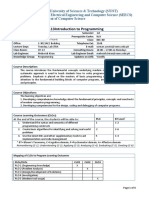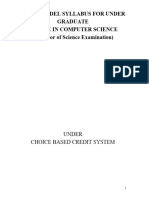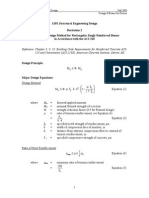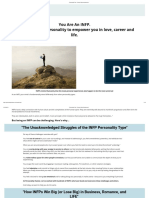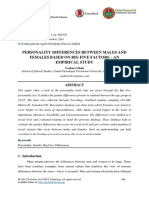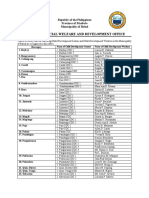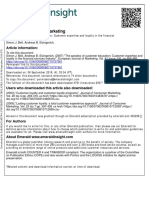0% found this document useful (0 votes)
404 views4 pagesCS 114 Fundamentals of Programming - Fall 2019 - Zunera - Final
This document provides information about the CS-114 Fundamentals of Programming course offered in the 1st semester at NUST. The course is a 2+1 credit hour course that introduces basic computer programming concepts using C language. It will be taught by Zunera Zahid on Wednesdays and Fridays in classroom CR 13/14. Students will learn algorithms, variables, selection statements, functions, arrays and more over 14 weeks of lectures and 13 labs. Students will be assessed through quizzes, assignments, two open-home tests, a lab project and end semester exam.
Uploaded by
Talha AnwarCopyright
© © All Rights Reserved
We take content rights seriously. If you suspect this is your content, claim it here.
Available Formats
Download as DOCX, PDF, TXT or read online on Scribd
0% found this document useful (0 votes)
404 views4 pagesCS 114 Fundamentals of Programming - Fall 2019 - Zunera - Final
This document provides information about the CS-114 Fundamentals of Programming course offered in the 1st semester at NUST. The course is a 2+1 credit hour course that introduces basic computer programming concepts using C language. It will be taught by Zunera Zahid on Wednesdays and Fridays in classroom CR 13/14. Students will learn algorithms, variables, selection statements, functions, arrays and more over 14 weeks of lectures and 13 labs. Students will be assessed through quizzes, assignments, two open-home tests, a lab project and end semester exam.
Uploaded by
Talha AnwarCopyright
© © All Rights Reserved
We take content rights seriously. If you suspect this is your content, claim it here.
Available Formats
Download as DOCX, PDF, TXT or read online on Scribd
/ 4














